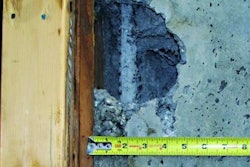Early this morning, the House Transportation and Infrastructure Committee passed the American Energy and Infrastructure Jobs Act of 2012 (H.R. 7), which authorizes $260 billion in federal funding for federal highway, transit and safety programs over a five-year period. The proposed legislation essentially maintains current funding levels, while providing longer term stability for the transportation industry.
Key points in the legislation include the intent to streamline the highway program and give states greater control over how the dollars are spent. "It consolidates or eliminates nearly 70 federal programs," says Dennis Slater, president of the Association of Equipment Manufacturers. "It also eliminates mandates that states spend highway funds on non-highway activities."
Under the House bill, earmarks for specific projects would be largely eliminated. Instead, states would be able to set their own transportation priorities, Slater points out, and more of the project approval authority would be been delegated to the states. This means projects with the highest priority are more likely to get done.
Points of contention
The Senate is scheduled to move its own version of a surface transportation bill to the Senate Finance Committee as early as next week. The Senate proposes $109 billion in funds over a two-year period.
While the Senate bill offers a slightly higher funding level per year, Slater contends that the five-year plan is more desirable. "Look at the trouble we've had trying to get a bill approved, and all the extensions. The idea of five years of market certainty… makes it very attractive to us," he states. "At the same time, the two-year bill again creates some market certainty, so I would never take away support of that. It's sure a lot better than the extensions that we have today.
"What's really crucial here isn't the fact that we think H.R. 7 is perfect," he maintains. Rather, both the Senate and House versions need to pass quickly in order to move both plans into conference so a compromise can be reached and a final bill passed before the current extension expires on March 31."
That may not be easy, despite similarities between the bills. Currently, the House bill contains provisions that could prove highly contentious. One is the language that would move mass transit funding out of the highway bill, with funds coming instead out of general revenue. "A lot of people won't accept that part of it," Slater predicts.
Perhaps the biggest objection will stem from the proposed method to finance H.R. 7. It proposes moving away from using the federal gas tax and replacing it with a tax on oil and gas drilling and exploration.
"There is a huge issue of will the revenue be there to fund this?" says Slater. "There are questions on the opposition side as to whether that will really fund… the shortfall between the gas user fee and the funding level they want."
Imperfect bill is better than no bill
Many of the concerns on both sides will likely be hashed out once the Senate and House versions of the bill make it into conference committee. But with time running out, the important part is to get there, and get there quickly, to avoid the need for yet another extension.
"Both the House and the Senate are starting to realize they really need to address this issue and not just keep having extensions," Slater states. "The fact that bills are coming forward is such a positive step vs. where we were two years ago when nobody even wanted to talk about this issue. We're finally seeing some action taking place, which really bodes well that Congress will address ite."
He remains cautiously optimistic that a final version of the bill will pass before the deadline. Election year politics may help play a part. "I think [Congress] wants to be able to show that they can work together and get some things done," he asserts. "In this kind of year, that does create some optimism."




















